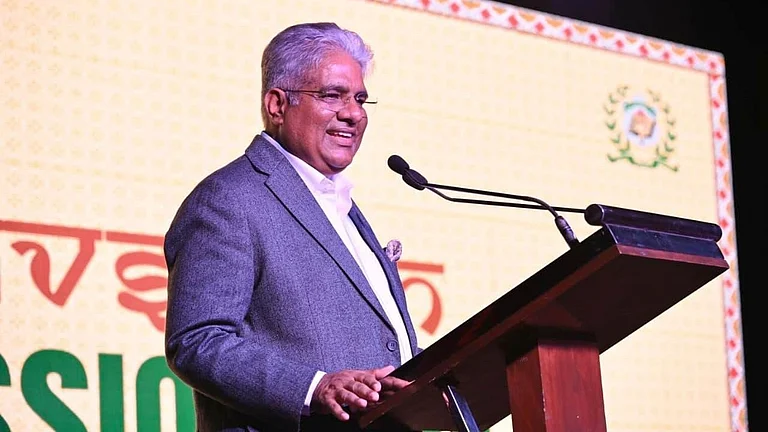India's private sector must set up, drive innovation and forge deep ties with research institutions in order to develop scalable and clean energy solutions, the Union Minister for Environment and Climate Change Bhupender Yadav said on Wednesday. He further said that the time for incremental change is over and all stakeholders, including corporates must act now.
While addressing the World Sustainable Development Summit, 2025 hosted by The Energy and Resources Institute( TERI), the Union Minister said that as energy demands rise, India has the opportunity and responsibility to accelerate development by securing a low-carbon future.
“This requires disruptive innovation, decisive implementation and unrelenting focus on sustainability,” he added.
He further mentioned the forecast of Asian Development Bank as per a latest report, which says that without addressing climate risk, India could lose 24.7% of GDP by 2070 due to climate-related disruptions.
Talking about India's net zero emissions target, the Minister also quoted India's fourth biennial update report submitted to the UNFCCC during December 2024. “India's emission intensity of GDP reduced by 36% between 2005 and 2020 compared to its 45% reduction target by 2030”, the report stated.
Yadav also said that to fight against climate change, synergies across sectors and policies are crucial. “Global challenges demand global solutions. The current multilateral system is failing to address cross-boundary issues like climate change,” he added.
While quoting the latest UNEP emissions gap report, the Minister said that it is still technically possible for us to stay on the 1.5 degree Celsius with solar energy, wind power and forests offering tremendous potential for significant and rapid reduction in emissions.
However he stated, “To fully unlock this potential, we must act with urgency and developed countries should honor and fulfill their obligations in particular of means of implementation. Further, nationally determined contributions must be strengthened and include measures to maximize socio-economic and environmental co-benefit with enhanced international cooperation as the foundation.”
He further noted that the proposed quantum of US$300 billion per year by 2035 under the new collective quantified goal on climate finance is inadequate against the US$1.3 trillion needed and that it effectively locking developing countries into a cycle of underfunded climate action.
“The proposed finance framework undermines equity by shifting responsibility from historical amateurs to developing nations through voluntary contributions, setting a mobilization rather than a provision goal”, he said.
Highlighting the existing gaps in financing, monitoring and cross-sectoral integration, the Union Minister said that the country has strong foundation for enhanced ambition and aspirational action in the next round of NDCs and that to achieve the vision of Vikshit Bharat, resilient and inclusive development strategies are essential.
































